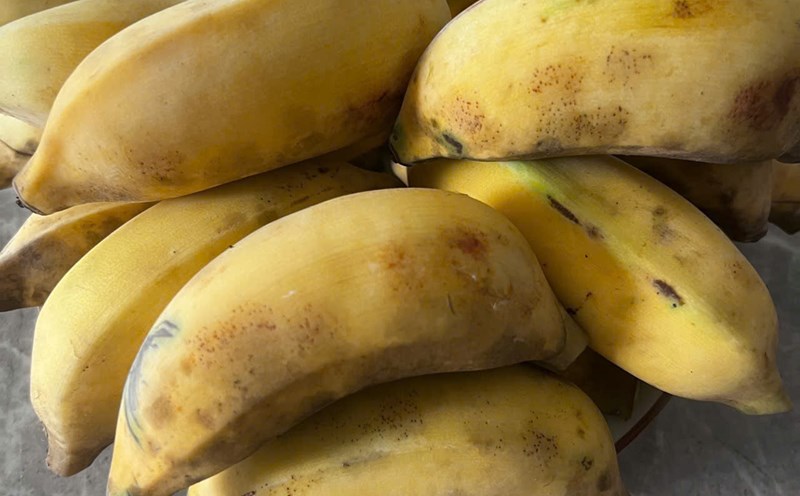Watermelon is rich in L‐citrulline, a precursor amino acid of arginine, which stimulates the production of nitric oxide, a natural dilator, which helps lower blood pressure and improve blood circulation.
Research in the American Journal of hypertension also recorded that consuming diluted watermelon water containing about 4-6g of L‐citrulline/day for 4-6 weeks significantly reduces the stiff blood pressure (SBP) and dialysis (DBP) in people with mild to moderate high blood pressure.
Use about 300-400ml of fresh watermelon juice per day (equivalent to 2-3 large pieces of watermelon), preferably in the morning on an empty stomach to absorb L‐citrulline most effectively.
While the watermelon meat provides water, natural sugar and citrulline, the white part under the skin contains a lot of chlorophyll, pectin and some flavonoids with anti-inflammatory and antioxidant effects.
Watermelon spinach extract helps reduce vascular endot play inflammation and improve endothelial cell function, a key factor in regulating blood pressure.
When squeezing watermelon, cut the entire white riceped (after peeling off the green peel on the outside) to blend together. Filter the juice; the pulp can be fermented to make vinegar or mix with salad.
Watermelon contains about 90% water and a high potassium content (about 170mg/100g), which helps diuretic lightly and excrete sodium through urine, helping to reduce endovascular pressure and support lowering blood pressure. However, the rich potassium can cause imbalances if you only drink watermelon water.
After each 200-250ml of watermelon juice, you should drink an additional 200-300ml of filtered water to balance electrolytes, avoiding the situation of high blood potassium, especially in people with impaired kidney function.
Over thick juices (natural sugar spikes) can cause increased blood sugar and stimulate insulin secretion, an indirect factor in vasoconstriction. At the same time, a lack of fiber causes poor absorption of sugar and citrulline.
Dilute watermelon juice in a ratio of 1 portion of juice: 1-2 portions of water, or puree the watermelon to retain fiber. Add a tablespoon of soaked chia seeds to increase fiber, which helps release sugar and nutrients slowly.
Drinking watermelon water right after waking up helps the body recover water after sleep and triggers nitric oxide production. Avoid drinking too late in the afternoon and evening because it can increase the need to urinate, affecting sleep.
Drink once in the morning, once in the middle of lunch (about 1 hour after main meals), should not exceed 600-800ml/day to prevent potassium accumulation.










